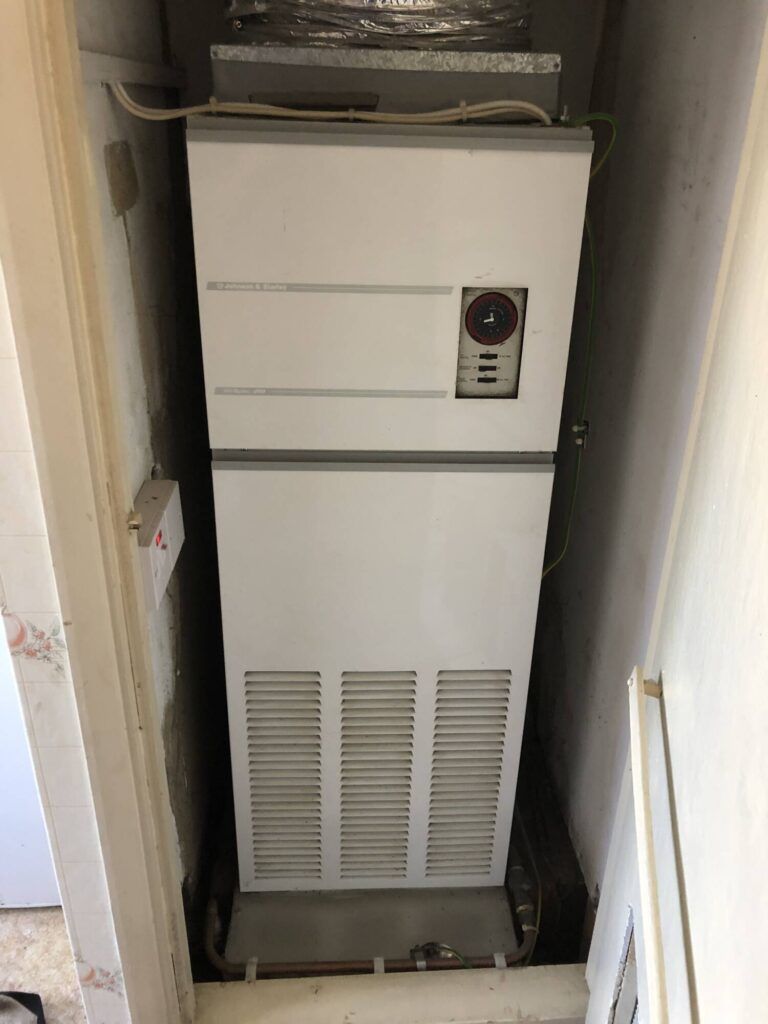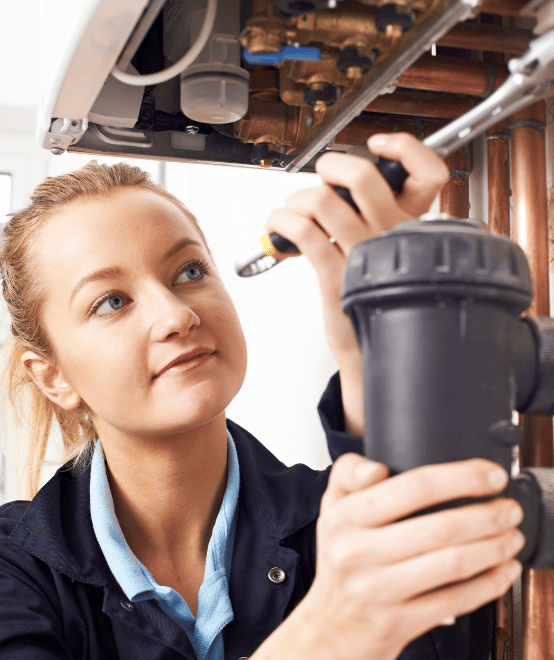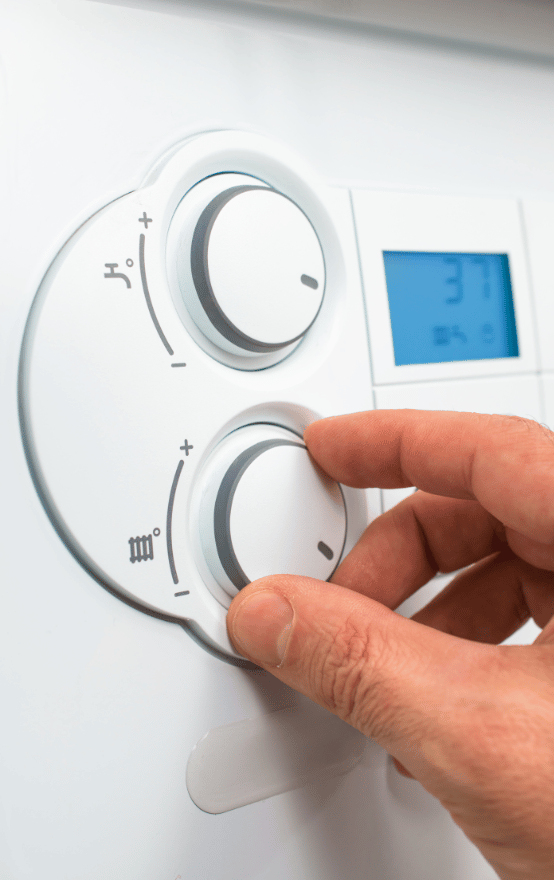Does Insulation Keep A House Cool During Summer? Written by: Energy Efficient You Published: 18th July 2024 Get in Touch Does Insulation …
Warm Air Heating System Grant
Warm Air Heating Systems
What Is A Warm Air Heating System Grant?
A warm air heating grant is a financial assistance program offered by the UK government to help eligible households cover the cost of replacing their old or inefficient warm air heating system with a Gas combi condensing boiler or an Air source heat pump .
Warm air heating system grants have a few main objectives:
- Affordable Warmth: it provides funding to low-income households to improve the energy efficiency of their homes and reduce their heating costs.
- Carbon Saving Communities Obligation: it provides funding to support the installation of energy-efficient measures in low-income communities and hard-to-treat properties.
Under the warm air heating grant, eligible households can receive funding to help cover the cost of installing a new, more efficient Gas combi condensing boiler or an Air source heat pump. To qualify for a grant to upgrade your warm air heating system, households typically need to meet certain eligibility criteria, such as being in receipt of certain means-tested benefits or having a household income of less than £31,000 per year. Homeowners and tenants may both be eligible, depending on their circumstances.
Warm air heating system grants are part of ECO4, a large nationwide government energy efficiency scheme that provides funding to help low-income households make energy-saving home improvements. The ECO4 scheme not only provides warm air heating grants, but other grants such as Gas boiler and Air Source heat pump grants.
With the new goal set for the UK to go carbon neutral by 2050, the government is keen for more property owners to take up grants such as the first-time central heating grant and Air Source heating grants.
Warm Air Heating Systems
What Are Warm Air Heating Systems?

Warm air heating systems are a type of heating system that works by heating air and then distributing it throughout a building using ducts or vents.
The warmed air is blown into the rooms of the building through floor or wall vents, registers, or grills, creating a comfortable and even heat.
There are several types of warm air heating systems, including gas-fired systems, oil-fired systems, and electric systems.
Gas-fired and oil-fired systems are the most common types, and they work by burning fuel to heat air that is then distributed throughout the building. Electric systems, on the other hand, use electric heating elements to warm the air.
Older warm air heating systems are inefficient compared to newer alternatives, meaning that they are more expensive to run, and won’t heat your home as well.
Warm air heating systems are known for their ability to heat a room quickly and evenly, and they can be very effective at keeping large or open spaces warm.
Warm Air Heating System Replacement
Am I Eligible For A Warm Air Heating System Grant?
To be eligible for a warm air heating grant, you must meet certain criteria, which can vary depending on the type of measure you are applying for. The eligibility criteria for these grants are set out by the UK government and include:
- Income-based eligibility: To qualify for a warm air heating system grant you must be on a low income or receiving certain benefits, such as Pension Credit, Child Tax Credit, or Universal Credit. The specific income and benefit requirements may vary depending on the grant that you are applying for. You can also qualify for a warm air heating grant if your household income is less than £31,000 per year.
- Energy performance eligibility: Your property must meet certain energy performance criteria, such as having an EPC (Energy Performance Certificate) rating of D, E, F, or G to qualify for a grant.
- Landlord eligibility: If you are a landlord, you must have the necessary permissions from your tenants to undertake energy-saving measures and meet certain other requirements.
It is important to note that the eligibility criteria for a warm air system replacement scheme can vary depending on the type of grant you are applying for.
You can find out if you are eligible for a warm air heating grant, and a wide range of grants under the ECO4 scheme by getting in touch with us today!

Warm Air Heating System Grant
Why Should I Apply For A Warm Air Heating System Grant?
Warm air heating grants provide several benefits for households in the UK, including:
Lowering your energy bills: By making energy-saving home improvements such as more efficient warm air heating systems, households can save up to 18% on their energy bills.
Improving the comfort of your home: Energy-efficient homes are easier to keep warm and maintain a more stable temperature, providing a more comfortable living environment for occupants.
Improving your health at home: Cold and damp homes can have a negative impact on health, particularly for vulnerable groups such as the elderly or those with respiratory conditions. By improving energy efficiency, more efficient warm air heating systems can help to reduce the incidence of respiratory illnesses and other health issues associated with living in cold, damp conditions.
Reducing carbon emissions: Improving the energy efficiency of homes is an important part of reducing carbon emissions and combating climate change. By reducing energy consumption, warm air heating systems can help to lower greenhouse gas emissions and contribute to the UK’s climate change targets.
Warm Air Heating System Grants
Qualifying Benefits For A Warm Air Heating System Grant

Warm air heating system grants provide support for households on low
incomes or receiving certain benefits to improve the energy efficiency of their
homes. The specific benefits that qualify for the scheme may vary depending on
the measure being installed but typically include:
- Income-Based Jobseekers Allowance (JSA)
- Income Related Employment & Support Allowance (ESA)
- Income Support (IS)
- Pension Credit Guarantee Credit
- Working Tax Credit (WTC)
- Child Tax Credits (CTC)
- Universal Credit (UC)
- Housing Benefit
- Pension Credit Savings Credit
You can also qualify for a warm air heating grant if your household
income is less than £31,000 per year.
Warm Air Heating System Replacement
What Types Of Warm Air Heating System Are There?
There are several different types of warm air heating systems, including:
- Gas-fired warm air heating systems: These systems use natural gas or propane to heat the air, which is then distributed throughout the building using ducts and vents. Gas-fired warm air heating systems are among the most common types of warm air heating systems in the UK.
- Oil-fired warm air heating systems: Similar to gas-fired systems, oil-fired systems burn heating oil to heat the air, which is then distributed throughout the building using ducts and vents. Oil-fired systems are less common than gas-fired systems but are still used in some areas.
- Electric warm air heating systems: These systems use electric heating elements to heat the air, which is then distributed throughout the building using ducts and vents. Electric systems can be more expensive to run than gas or oil systems, but they can be a good option for buildings that are not connected to a gas supply.
- Heat pump warm air heating systems: Heat pump systems work by extracting heat from the outside air and using it to warm the air inside the building. The warmed air is then distributed throughout the building using ducts and vents. Heat pump systems are very energy-efficient in comparison to other options.
- Hybrid warm air heating systems: Hybrid systems combine a heat pump with a gas or oil boiler, allowing the system to switch between the two depending on the outside temperature and the heating needs of the building. Hybrid warm air heating systems are very energy-efficient and cost-effective.
These are just a few examples of the types of warm air heating systems available. The best choice for a particular building will depend on factors such as the size of the building, the fuel type available, and the budget for installation and maintenance.

Warm Air Heating System Grant Eligibility
Check Your Eligibility For A Warm Air Heating System Grant
Warm Air Heating System Grants
Government Grants That Are Available
Our Articles On Energy Efficiency
Learn More About Energy Efficiency
How To Keep Your Home Cool During Summer Written by: Energy Efficient You Published: 4th June 2024 Get in Touch How To Keep …
What Is A Back Boiler? Written by: Energy Efficient You Published: 16th May 2024 Get in Touch Back Boiler Heater Systems In …




